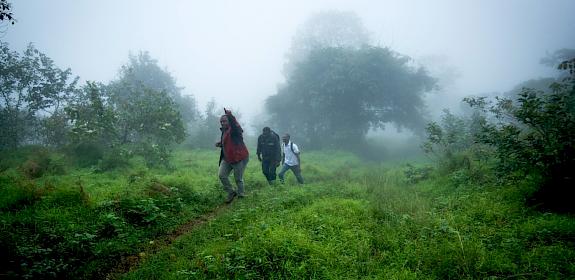Trainee judges receive overview of environmental and wildlife law
Delhi, India, April 2010—TRAFFIC India has conducted a one-day orientation programme on environmental and wildlife law for 83 trainee judicial officers at the request of the Delhi Judicial Academy (DJA).

The programme provided an overview of the current status of forest and wildlife policies and legislation and helped raise awareness of wildlife conservation challenges of in India. There were detailed sessions on forestry conservation, illegal wildlife trade, environmental law and on the Supreme Court and Biodiversity Conservation in India.
The Hon. Chief Justice of Delhi High Court Shri Madan Lokur graced the occasion along with Shri A K Mukherji, Former Director General of Forests and Special Secretary, Government of India; Shri Samir Sinha, Head of TRAFFIC India; Prof. (Dr) Ved Kumari, Chairperson DJA; Ms Anu Malhotra, DHJS (Delhi Higher Judicial Services) and Director-DJA; Shri Alok Agarwal, DHJS and Joint Director-DJA; Shri Mahendra Vyas, Advocate and Member of the Central Empowered Committee, Supreme Court of India, Shri A D N Rao, Advocate-Supreme Court of India and Amicus Curie, Shri Ritwick Dutta, Advocate Supreme Court of India and other senior officials of the Delhi Judicial Academy.
Hon. Chief Justice Shri Madan Lokur said, “So far legal matters related to environment and forests have largely been restricted to High Courts and Supreme Court. There is a crying need for other courts to take cognizance of the importance of such issues.”
“The powers vested with the judicial officers allow them to play a pivotal role in changing the mindsets of society towards various issues and especially those that may not have immediate direct impact on the lives of people like environment and wildlife. He therefore encouraged the officers to understand the environmental and wildlife laws and exercise decisions which help ensure ecological security for future generations.”
Shri Samir Sinha, Head of TRAFFIC India emphasized the need for judicial support to assist with curbing wildlife crime in India.
Shri Mahendra Vyas, Advocate and Member of the Central Empowered Committee reminded the judicial officers of the enormous responsibility they bore in saving India’s natural heritage.
The training was conducted at the end of March, in collaboration with the Wildlife Institute of India. Further training will take place in Dehradun at the Wildlife Institute of India, including a field trip to Rajaji National Park.




